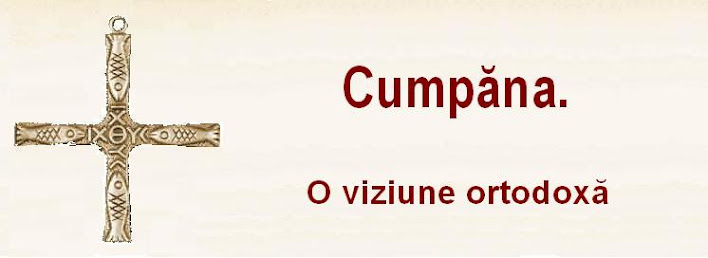În stradă ajung nu doar copiii abandonați de
familie și de stat, ci și acei copii a căror familie este strada înțeleasă ca loc de manifestare civică. Chiar dacă
sunt adulți, principalul lor devotament nu este față de familie și societate,
ci față de stradă și statul care o susține. Noii copii ai străzii sunt cei care
și-au abandonat familia, fie prin refuzarea ei, fie printr-un angajament mai
degrabă civic față de ea. Ei sunt opera noului model de stat, „statul
societății civile” cum îl numește foarte potrivit Alexandru Racu în textul
unde-i descrie modul de funcționare (https://alexandruracu.wordpress.com/2016/02/17/minoratul-perpetuu/),
un stat care-și limitează reprezentativitatea la indivizii care-l susțin
strict ca indivizi. Poate că acest tip de stat reprezintă o nouă încercare de a
realiza „statul ideal” (după cum sugerează Al. Racu), după modelul celui platonician, unul care „poate ignora
structurile și relațiile de familie pentru a trata în mod direct cu indivizii.”
(Patrick Henry Reardon, „The
Not-So-Good Samaritans”, Touchstone
Magazine, April 2003, http://www.touchstonemag.com/archives/article.php?id=16-03-038-f.
Am inclus un pasaj instructiv din articolul părintelui Reardon în încheierea actualei
postări).
Aceasta
nu înseamnă că este destul să ieși în stradă pentru a fi recunoscut de noul
stat: „Strada? Strada despre care vorbește MM [Monica Macovei] e fiica și
nepoata străzii pe care ea a anchetat-o, împreună cu colegii ei de la
Procuratura sectorului 1, la mineriada din 14-15 iunie, în curtea de la
Măgurele.” (http://www.catavencii.ro/editorial/muscatura-macovei/).
Strada poate fi și „mahalaua ineptă” a lui Baconschi (sau Adrian Papahagi http://www.catavencii.ro/mahalaua-lenesa-si-interesata/)
atunci cînd nu-și recunoaște elita, adică meritele și mai ales interesele elitei.
Dar chiar și copiii străzii recunoscuți de putere ar trebuie să știe că sunt
mai degrabă fiii ploii și că o dată cu sfîrșitul politicii destinul cetății
omului este hotărît de zeul care coboară sub forma ambasadorului american.
Unii
cercetători susțin că jumătate din speciile de animale sălbatice au dispărut în
ultimii 40 de ani (http://news.nationalgeographic.com/news/2014/09/1409030-animals-wildlife-wwf-decline-science-world/).
Oricît de grav ar fi acest lucru, cred că și mai tare ar trebuie să ne sperie
iminenta dispariție a omului ca animal politic, în sensul aristotelician al
expresiei. Pentru că atunci lumea ar fi populată numai de fiare și zei.
Patrick Henry Reardon: „The Not-So-Good Samaritans”
“[...]
There are two reasons for this necessity of the State, Aristotle went on to
affirm, indicating thus the State’s two functions.
First,
as we considered earlier, the state exists for the sake of families and those
small communities formed immediately by families. (Aristotle termed these
latter “villages,” but the concept is profitably expanded to include those
lesser and mediating institutions, such as guilds and the like, that
Tocqueville called les corps intermédiaires.) Families, Aristotle
recognized, are not sufficient unto themselves. The State, therefore, exercises
a social and economic service to households and groups of households. There are
two points to be emphasized here. First, the State exists for the sake of the
family, not the other way around. Second, the State is properly related to its
citizens, not primarily as individuals, but as members of families.
In
both respects it is instructive to contrast Aristotle with Plato. The latter
evidently did not see the family as essential to human life as such, because in
the Republic he permitted marriage and domesticity only to the lowest
members of society.
The
“better sort” do not require it. The children begotten of the elite and
“guardian” classes, he believed, should be raised in non-familial nurseries.
Plato’s State could thus bypass the structures and relationships of the family
in order to deal immediately with individuals. Aristotle, pouring his scorn on
this theory, appealed to the most elementary psychology—man’s fundamental
domestic sentiment. In Plato’s arrangement, he argued, human beings would be
deprived of the normal relationships of family, because “there is no reason why
the so-called father should care about the son, or the son about the father, or
brothers about one another.” The State, according to Aristotle, has no business
interfering in these relationships by which family members are defined.
To
place the State in its proper relationship to the family, Aristotle relied
entirely on tradition. This is why, again unlike Plato, he had no theory of an
“ideal” State.
Recognizing
that “the best is often unattainable,” he urged legislators to investigate,
through the study of history, “what kind of government is adapted to particular
states.” In this way they would discover which form of government is “best,
according to the circumstances . . . how the State may be
constituted under any given conditions . . . how it may be
preserved the longest.” We will learn such matters, according to Aristotle,
from tradition. States are constituted within the living traditions of families
and those smaller communities formed immediately by families. Families (and
more specifically mothers) are the primary bearers of tradition.
Surely
the time has come for a reaffirmation of this Aristotelian thesis. To assert
that the State exists for the preservation and well-being of families is to lay
the foundation for certain kinds of political agendas and policies. It is to
indicate, likewise, what should be the State’s attitude toward those theories
and practices that show themselves inimical to families. The State must not be
neutral in these respects, and basic questions should be posed within this
humanizing perspective of domesticity.” (http://www.touchstonemag.com/archives/article.php?id=16-03-038-f)
